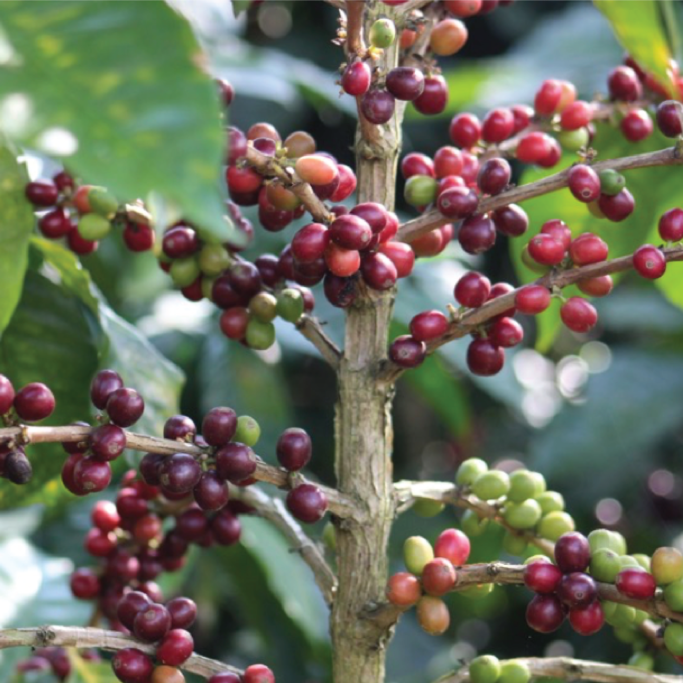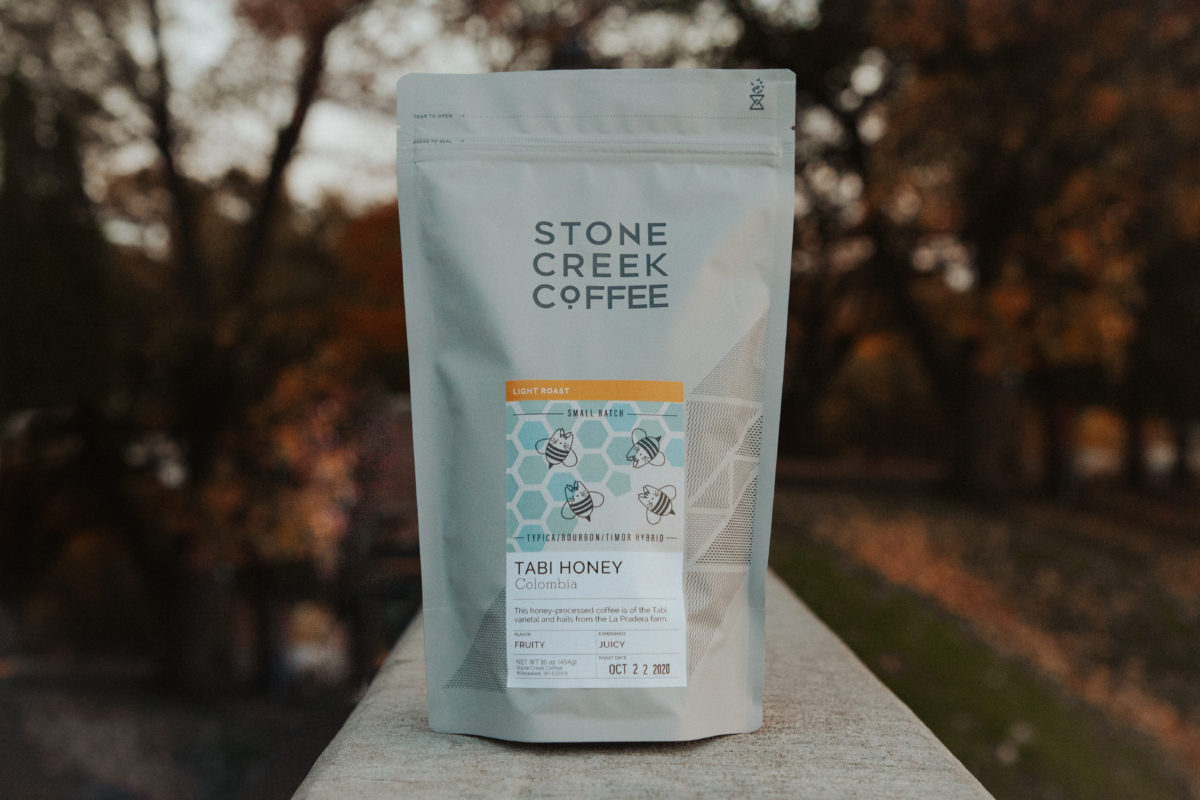Coffee Geeks, Farm to Cup
TABI HONEY COLOMBIA
Over the past couple of months, we’ve been extra excited about bringing in coffee with different process methods to our small batch line. Typically, we purchase coffee that has been washed, but our small batch line is the perfect place to try different varietals and process methods. We only purchase a small amount of each coffee, so these are limited-run and only around for a short period of time. We’ve had several honey processed coffees and even a natural process recently, but to keep rolling along on our honey process train, meet our newest small batch, Tabi Honey Colombia!
First, let’s give a quick overview about processing methods if you missed our previous blogs discussing this. Before coffee beans can be roasted, the layers of the coffee cherry must be removed and the pits (beans) need to dry out. Coffee processing methods are the ways that the coffee cherry is removed from the beans. A washed process coffee means that all of the coffee fruit (called “mucilage”) is removed in water before being dried. Washed processing can create bright, consistent, and clean flavors. Natural processing lets the coffee (mucilage and all) dry in the sun before mechanically removing the fruit from the beans. Coffees that are naturally processed can have intense and fruity flavors. Honey processing lives somewhere in the middle. Called “honey” due to the coffee becoming sticky during the drying process, the cherry skin is removed but some of the mucilage remains on the beans while they dry on raised beds. The amount of mucilage left on the beans influences the fermentation and the ultimate flavor profile of the coffee. Coffee that is honey processed can vary, but tends to be complex, sweet, and heavy-bodied.
Now that we’ve talked about processing, let’s briefly touch on the variety. When we refer to the coffee’s variety, it is the type of coffee cherry that the beans come from. There are traditional varieties (like Typica and Bourbon), selections (like Gesha or SL28), mutations (like Caturra and Villa Sarchi), and hybrids (like Tabi). Varietals affect flavor and more, including resistance to certain diseases, like Coffee Rust. Tabi is unusual and pretty rare. It only contributes to less than 1% of all coffees that are produced in Colombia. It was created as a response to Coffee Rust by crossing Typica, Bourbon, and Timor Hybrid. Getting excited about this coffee, yet?
Tabi Honey Colombia is brought to us from La Pradera Hacienda Cafetera, a family owned and operated organic estate farm in Aratoca, Santander, Colombia in the Cordillera Oriental Eastern Mountain Range. The Chicamocha Canyon, the second largest in the world, creates a unique microclimate extremely favorable for coffee, with warm air currents during the day and cool breezes and rain at night. Four generations of the Daza Bautista family are directly involved in the production, processing, and export of specialty coffee. Honey coffee processing at La Pradera begins by fermenting coffee for 10 hours in GrainPro and 24 hours in tanks then washing ripe cherries to remove dirt and depulping cherries to separate the bean from the pulp. Coffee cherries dry slowly with sweet mucilage covering the beans. Coffee dried for 10 days on elevated metal beds on a sanitized patio then for three days in a mechanical dryer below 35° C with constant air circulation and parchment rotation between drying levels. The quality in the cup reflects the value the family places on their land and their coffee.
In a cup of Tabi Honey Colombia, you’ll experience complex notes reminiscent of a fuller bodied bourbon whiskey paired with the sweetness of fruity cereal in whole milk and the juiciness of yellow kiwi for a truly memorable experience. Click the button below and snag some of the limited-run Tabi Honey Colombia before it runs me-owt.



